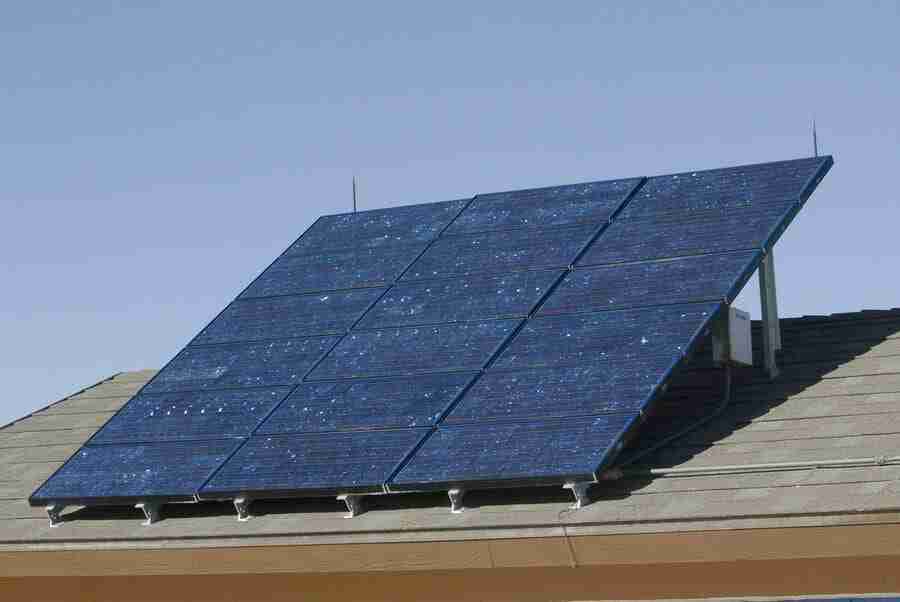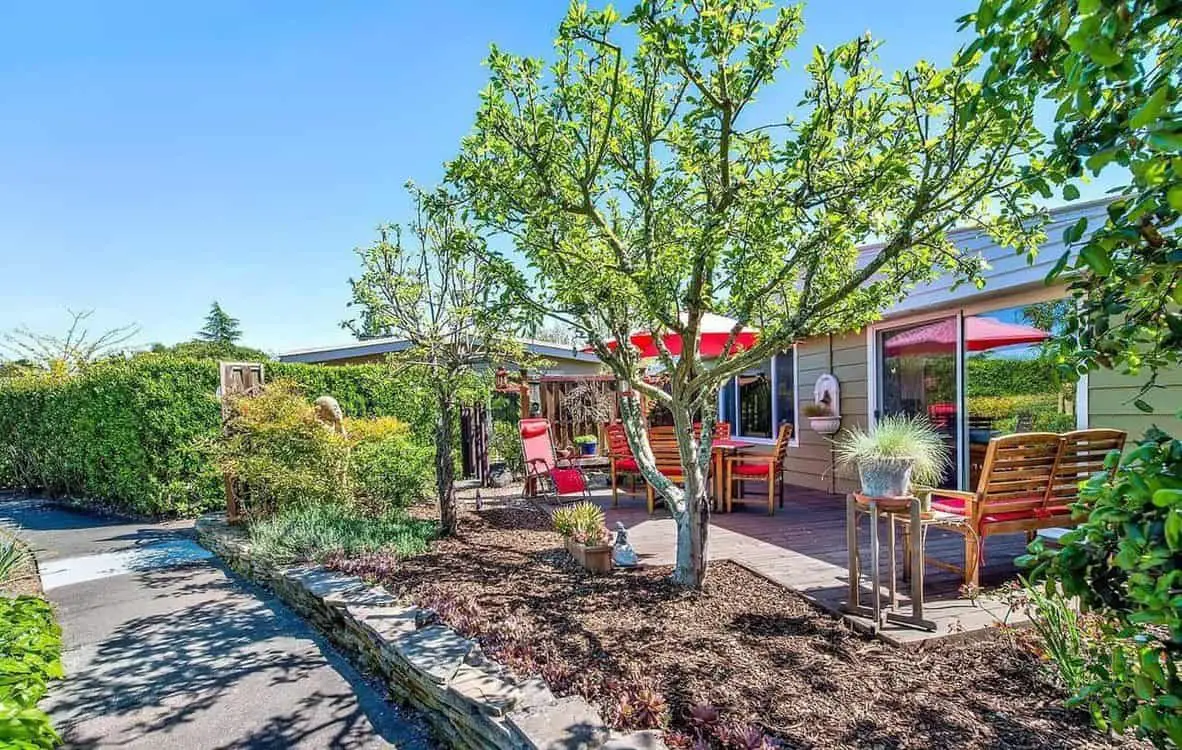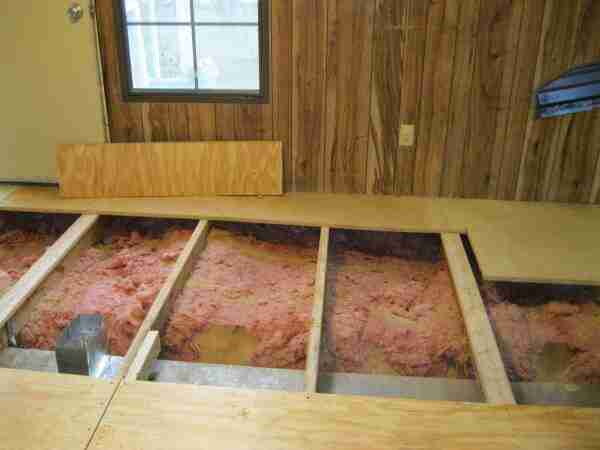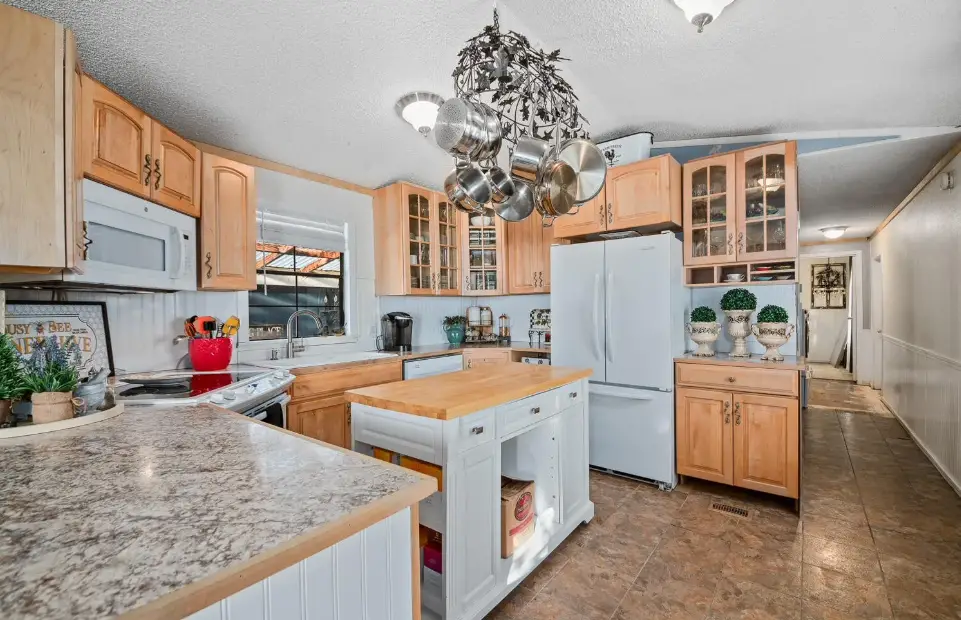There’s a bit of controversy about installing solar panels on a mobile home.
If you ask Google about installing solar panels on a mobile home the majority of results will say that you CAN install them on the roof. However, a few of the results state that you cannot install solar panels on a mobile home.
Ironically, both are right.
The confusion about solar energy systems on mobile homes is mostly due to the wording and difference between a mobile home and manufactured home.
Simply put, you should be able to install solar panels on a manufactured home but it’s probably best to put them in the yard if you own a mobile home. That’s because mobile homes have smaller structural framing and trusses that cannot support the weight of a solar panels.
What’s the difference between a mobile home and manufactured home?
Mobile Vs Manufactured Home
Mobile homes were built before the HUD Coe took effect in June 1976. A manufactured home is a factory-built home that was built after June 1976.
HUD Code improved the structural integrity of factory-built homes by requiring larger studs and safety features.
Solar energy provides energy for lighting, powering small household appliances, and even air conditioning and refrigeration.
Going solar can absolutely lower your energy costs but most mobile homeowners use solar power as a backup energy source.
If you’re considering adding solar panels to a mobile r manufactured home the following information will help.
Understand Your Manufactured Home’s Energy Requirements
Identifying your energy needs is crucial before making solar panels purchase.
You’ll need to calculate the size of your home and family, notate the size of your heating and cooling system, and study your family’s energy usage patterns.
- calculate the size of your home and family.
- notate the size of your heating and cooling system.
- study your family’s energy usage
There are two main types of solar technologies: photovoltaics (PV) and concentrating solar-thermal power (CSP), simply referred to as thermal. Today’s solar panel technology is possible because of a discovery in 1839.
The was first discovered in 1839 by Alexandre Edmond Becquerel. His discovery of the photovoltaic effect explained how electricity could be generated from sunlight.
Once Becquerel discovered the photovoltaic effect it was used to fuel the industrial revolution. Thermal solar energy was use
+- to create steam from heated water that powered machinery.
How Do Solar Panels Work?
Solar panels use the same photovoltaic energy principles as thermal energy.
Energy.gov describes the solar energy process best:
“When the sun shines onto a solar panel, energy from the sunlight is absorbed by the PV cells in the panel. This energy creates electrical charges that move in response to an internal electrical field in the cell, causing the panels
Types of Solar Panels
Choosing the right type of solar panels for your home is important. There are three main types of solar panels: monocrystalline, polycrystalline, and thin-film.
Monocrystalline Solar Panels
Monocrystalline solar panels are the most efficient with an efficiency rate between 22-27%. They work best in areas with lots of sun but they cost more than the others.
Polycrystalline Solar Panels
PV panels are a more practical solution for mobile homes because they take up less space and can be put on the roof or the ground. Polycrystalline solar panels can be the most cost-effective. PV panels use sunlight to generate direct current (DC) power. They are a more practical solution for mobile homes because they take up less space and can be put on the roof or the ground.
Thin-film Solar Panels
Thin-film solar panels can be the best for unorthodox roof styles and could be the solution for older mobile homes because they weight less.
Installing Solar Panels on a Manufactured Home
The size of your roof isn’t a big factor when installing solar panels on a manufactured home, it’s the roof’s strength that is most important.
Most newer manufactured homes have a strong roof base that will easily withstand solar panels. To ensure that your manufactured home is capable of the solar panel installation you’ll want to get the advice of an expert.
If placing the solar panels on the roof is not an option, you could mount them separately.
Installing a new solar system on your manufactured home will cost quite a bit upfront but the long term savings can offset that initial Depending on the size and complexity of the system, the cost of solar panel installation on a mobile home can vary significantly.
Tax Incentives
Special government tax incentives may be available to you for a solar installation. There are federal, state, and even local programs that can offset the initial costs. There are plenty of free tax filing resources available to help you find out details about this in your state or city. Of course, a solar panel installer can help you assess your energy needs and design a solar system that meets them.
Your monthly utility costs may drop or disappear if you generate your own electricity, potentially saving you thousands of dollars throughout the system’s lifespan. Plus, you will contribute to environmental protection.
A wonderful approach to decrease your negative impact on the environment is using solar panels. You may lessen the quantity of greenhouse gases discharged into the atmosphere by installing solar panels on your mobile home. This is beneficial to the environment and can assist you in fighting climate change. Choose the right type of solar panels. Photovoltaic (PV) and thermal solar panels are the two varieties available.
In conclusion, mobile home solar panels can be a wise investment that not only reduces your electricity costs but also contributes to environmental protection.
You will take advantage of clean, renewable energy for many years if you make the proper planning, installation, and incentives.
Thank you for reading Mobile Home Living!




